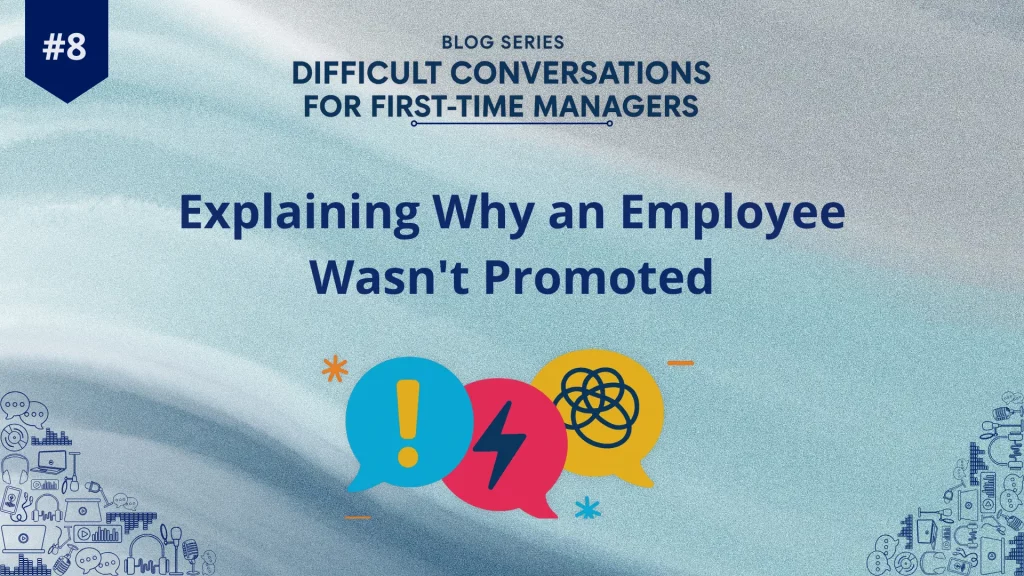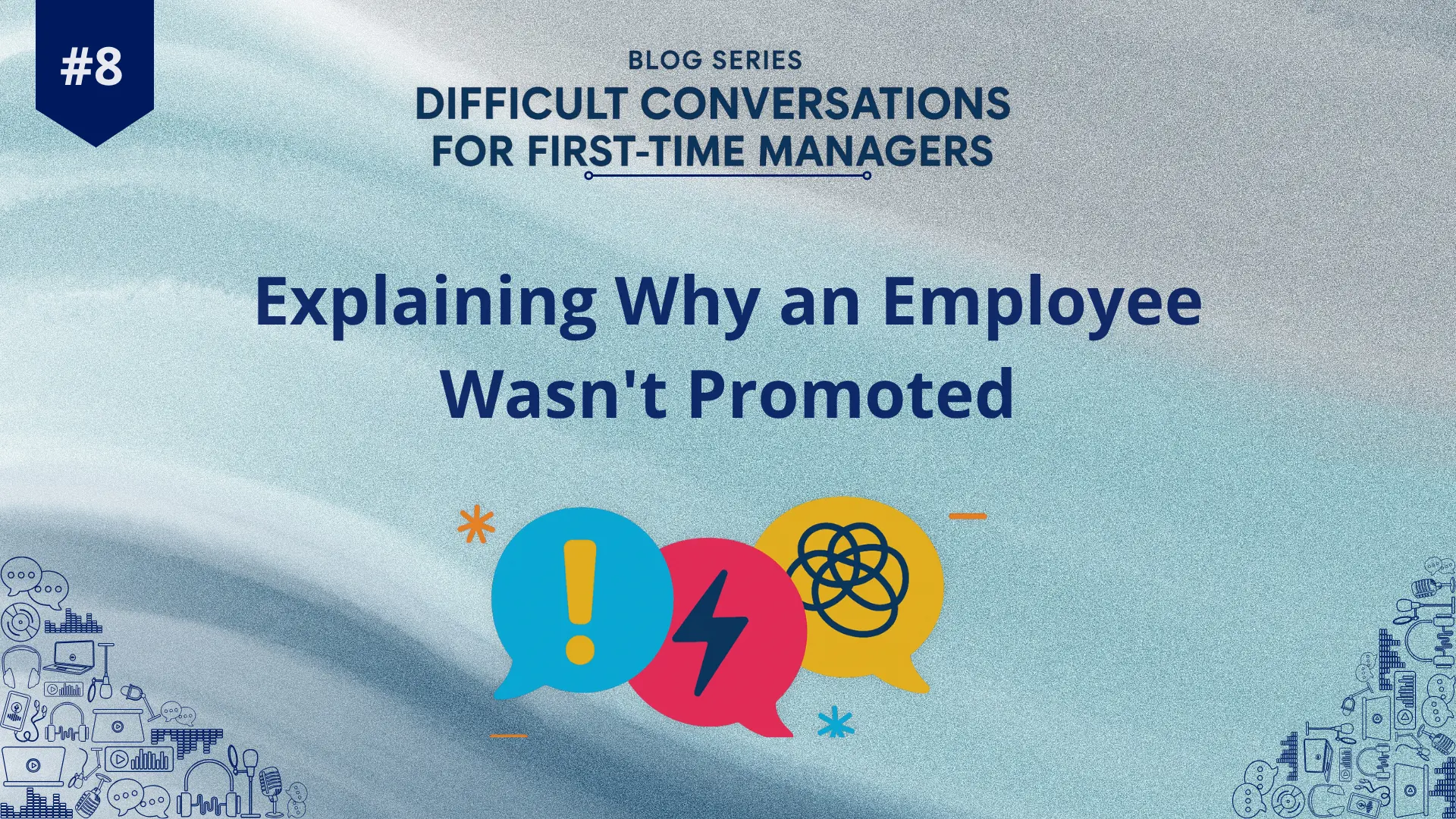“Am I a Good Leader If My Team Feels Disappointed?”


“Why do leadership lessons often start after we hurt someone unintentionally?”
This question haunted me when I sat across from a brilliant team member, explaining why she wasn’t promoted. She had the potential, the drive, and the loyalty — but when I delivered the news, her face fell. In that moment, I realized that leadership isn’t just about celebrating wins; it’s also about standing strong in uncomfortable moments.
If you’re a first-time manager wondering how to tell a hardworking employee, they didn’t make the cut — without breaking their spirit — this article is for you.
Leadership Isn’t Just Applause — It’s Also Accountability
In Indian workplaces, promotions are seen as a rite of passage. Titles matter. A promotion isn’t just a pay hike — it’s social recognition, validation, even family pride.
When you have to tell someone they didn’t get promoted, you aren’t just talking to the employee — you’re talking to their ambitions, dreams, and self-worth.
Here’s the truth:
- You can handle this conversation poorly and lose their trust.
- Or you can handle it thoughtfully and turn it into a launchpad for their growth.
Leadership shows up most during difficult conversations.
Step 1: Prepare Like It’s the Most Important Meeting of the Day
Many first-time managers walk into these conversations under-prepared, hoping to “wing it” with vague sympathy.
That’s a mistake.
How to prep:
- Understand exactly why the decision was made (performance, readiness, business need).
- Have clear, specific examples.
- Check for personal biases before finalizing the talking points.
Culturally relevant tip: In India, where hierarchy is deeply respected, employees may not question you openly — but silence doesn’t mean acceptance. Prepare for silent disappointment and plan how you’ll invite honest dialogue.
Step 2: Acknowledge the Person, Not Just the Performance
A mechanical, HR-sounding explanation can make people feel invisible.
Instead, start by recognizing their efforts sincerely.
You could say:
“I want to start by appreciating how much you’ve contributed. Your commitment to this team has been visible to all of us.”
Remember:
Validation isn’t about sugarcoating. It’s about showing that you see them — not just their results.
Indian workplaces tip: Employees often expect managers to play a mentor-like role. Taking two minutes to acknowledge their journey can mean the difference between demotivation and renewed loyalty.
Step 3: Communicate the Decision Clearly and Kindly
Avoid vague language like:
“It’s a tough market…” or
“It was a very close call…”
Instead, say something clear and respectful like:
“After careful evaluation, we believe you’re on a strong path but need further development in [specific skill] to be fully ready for the next role.”
Actionable Tip: Stick to facts. Avoid personal opinions like “I feel you’re not ready.” Say:
“In the leadership competency review, we found that project leadership and stakeholder management were key focus areas.”
Culturally relevant point: Many Indian employees might have a strong belief that tenure should automatically equal promotion. Be prepared to explain that promotion decisions are based on readiness, not just years served.
Step 4: Offer a Path Forward, Not Just a Dead-End
Imagine being told “no” and left without a map.
Frustrating, right?
Your goal: Leave them with a plan for growth.
- Set specific milestones: “Let’s aim to lead two cross-functional projects this year.”
- Offer resources: “I’d recommend you attend our Leadership Skills Workshop.”
- Schedule a follow-up: “Let’s check in again after the next quarter review.”
Motivational reminder:
“The task of leadership is not to put greatness into people, but to elicit it, for the greatness is already there.”
— John Buchan
You are not gatekeeping opportunity. You are guiding their preparation for it.
Step 5: Handle Emotional Reactions with Grace
Not every employee will react calmly. Some may be quiet, others may express anger or sadness.
How to handle it:
- Stay calm and listen without interrupting.
- Acknowledge their feelings: “I can see this is disappointing. It’s completely understandable.”
- Don’t rush to defend the decision. Focus on supporting their growth mindset.
In Indian settings: Employees might not openly show emotion during the meeting but may disengage later. It’s crucial to keep communication open after this conversation through casual check-ins.

Leadership Reflection:
Next time you sit across an employee who didn’t get promoted, ask yourself:
Am I delivering a verdict? Or am I delivering a new beginning?
Because leadership isn’t about choosing who wins today.
It’s about helping everyone become stronger for tomorrow.
This article is contributed by the GlobalGyan Editorial Team as part of our Leadership Essentials series.
In our series ‘Difficult Conversations for First Time Managers’ by Guan D’Penha, Senior Manager – Learning Solutions at GlobalGyan Leadership Academy, we will be sharing insights on the challenges faced by first-time managers.
In the next chapter, we explore a conversation every leader must master—“Why Should Anyone Be Led by You If You Can’t Handle Role Changes Gracefully?”—a reflection on how to navigate emotionally charged role changes without losing trust or morale. Also, stay tuned for our upcoming article, “Am I a Good Leader If My Team Feels Disappointed?”—a reflection on how to tell an employee why they weren’t promoted, without breaking their spirit.






Responses